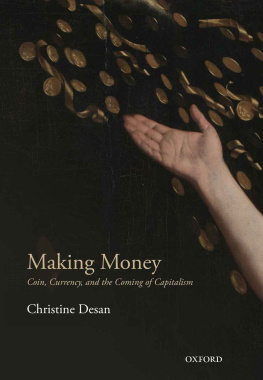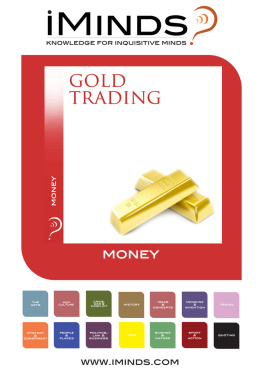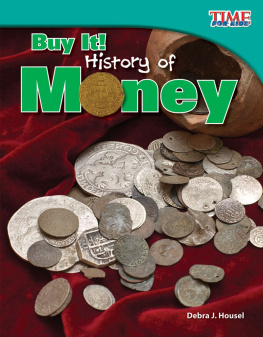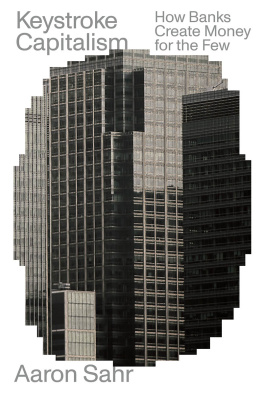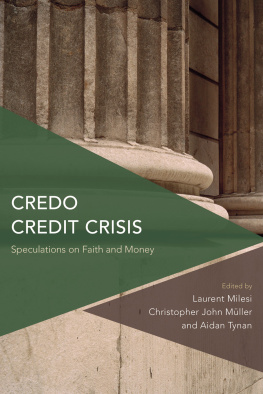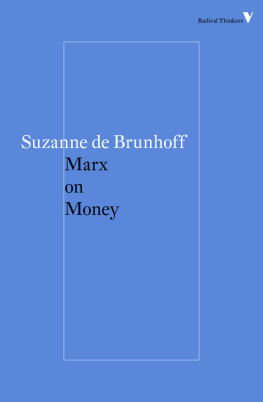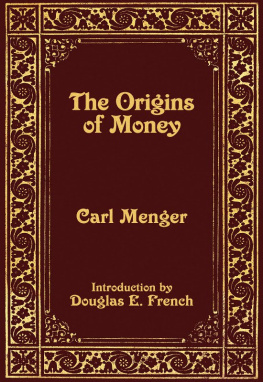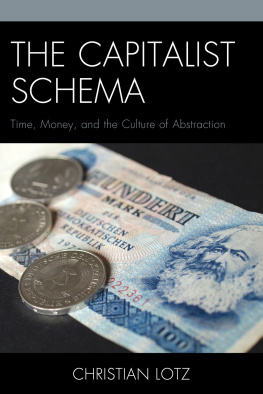Making Money
Coin, Currency, and the Coming of Capitalism
CHRISTINE DESAN


Great Clarendon Street, Oxford, OX2 6DP, United Kingdom
Oxford University Press is a department of the University of Oxford. It furthers the University's objective of excellence in research, scholarship, and education by publishing worldwide. Oxford is a registered trade mark of Oxford University Press in the UK and in certain other countries
C Desan 2014
The moral rights of the author have been asserted
First Edition published in 2014
Impression: 1
All rights reserved. No part of this publication may be reproduced, stored in a retrieval system, or transmitted, in any form or by any means, without the prior permission in writing of Oxford University Press, or as expressly permitted by law, by licence or under terms agreed with the appropriate reprographics rights organization. Enquiries concerning reproduction outside the scope of the above should be sent to the Rights Department, Oxford University Press, at the address above
You must not circulate this work in any other form and you must impose this same condition on any acquirer
Crown copyright material is reproduced under Class Licence Number C01P0000148 with the permission of OPSI and the Queens Printer for Scotland
Published in the United States of America by Oxford University Press 198 Madison Avenue, New York, NY 10016, United States of America
British Library Cataloguing in Publication
Data Data available
Library of Congress Control Number: 2014935041
ISBN 9780198709572
ebook ISBN 9780191025396
Printed in Great Britain by CPI Group (UK) Ltd, Croydon, CR0 4YY
Links to third party websites are provided by Oxford in good faith and for information only. Oxford disclaims any responsibility for the materials contained in any third party website referenced in this work.
To Bob
in another currency altogether
Acknowledgements
I thought that this book had given me the most exciting intellectual journey Id ever taken; then I realized it was the people in and around the book who made that adventure happen. Some of them lived centuries ago. Fortunately for me, the rest are those who talked, argued, engaged, and helped me throughout the process. Their support came in thousands of ways and these thanks are small change compared to the very large debt I owe. Still, the offering is heartfelt.
This book was informed from the start by critical legal studies and related efforts to understand liberalism as a legal project. It has been a stroke of great fortune (not to mention a lot of fun) to consider capitalism in the company of Mort Horwitz. I thank Lucie White deeply for her vision, teaching, and heart and I am endlessly grateful to Jerry Frug for his guiding wisdom on the process of social change and life more generally. Duncan Kennedys restless imagination regularly upended my conclusions, an experience that brought more alternatives than I expected into view. Scholars and students from a wide variety of methodologies and disciplines vetted this work at the Institute for Global Law and Policy, a venue made possible by the creative and generous enterprise of David Kennedy. More generally at Harvard Law School and the neighboring law teaching communities, I have benefited enormously from conversations with Betsy Bartholet, Tomiko Brown-Nagin, Dan Danielson, Pnina Lahav, Janet Halley, David Barron, David Grossman, Tammy Lothian, Todd Rakoff, Jim Rogers, Gerry Leonard, and Ken Mack. I thank my colleagues at the HLS Faculty Workshop for a great many insights across the years and I am particularly grateful for the engagement at the very beginning of the project by David Charney.
Many legal historians and fellow travelers nurtured this research. Charlie Donahue shared his tremendous erudition with such goodwill that the medieval became a terrain as inviting as it was intimidating. For their pioneering work on institutions and their invaluable advice, I thank Dirk Hartog, Stan Katz, Tom Greene, and Dan Ernst. For comments and conversations that shaped the project, I am indebted to Paul Brand, Al Brophy, Colleen Dunlavy, Karen Engel, Howard Erlanger, Josh Getzler, Bob Gordon, Sally Hadden, Dan Hamilton, Adam Kosto, Ken Lipartito, Bruce Mann, Bill Nelson, Jeremy Paul, Claire Priest, Jeff Sklansky, Avi Soifer, Rob Steinfeld, and Chris Tomlins. Bill Novak gave me counsel I found extremely productive; I am also grateful to him for a workshop at the University of Michigan. Participants there and at workshops at Boston College Law School, Boston University School of Law, University of Connecticut Law School, University of Minnesota Law School, Newcastle University School of Law, New York University School of Law, Oxford University, the University of Texas at Austin, and Yale Law School were very helpful.
David Fox and Wolfgang Ernst organized a project at Cambridge University on Money in the Western Legal Tradition; their contributions, along with those of Andreas Thier and other participants at the conference were an essential aid. David Seipp, along with Carol Lee, gave expertise both in person and by way of the magnificent Seipp database. Steven Wilf took an amazing eye to the introduction and told me to undertake changes long after I wanted to rethink anything; he was absolutely right. At many points, Barbara Welke graced this project with the intellect and generosity that is her trademark. Malick Ghachem and I began talking about money and finance long ago; I will draw from Malicks acumen for many years to come.
My thanks to Sven Beckert for sharing, in fact exuding, his sheer joy in the project of understanding the past; Ive benefited enormously from co-teaching with him the Workshop on the Political Economy of Modern Capitalism for the last ten years. The Workshop furnished a forum for discussing this project, both formally and informally, and the work both by students and more senior scholars done there has greatly affected my own. Special thanks to Seth Rockman for his superb insight, both narrative and methodological; to Betsy Blackmar, Barry Cohen, Mike Merrill, and Walter Johnson for discerning commentary at critical moments; and to Jack Womack for his gift for going to the heart of the matter. Alex Keyssar provided the very model of a scholar who unlocks history in order to address its legacies.
I have gained immensely from many others who brought their expertise to bear on this project, including Joanna Gray, Stanley Engermann, Tamar Herzog, George Kenney, Mark Kishlansky, and Vishaal Kishore. Steve Pincus, Justin duRivage, Lucy Kaufman, and others at the Yale University Transitions to Modernity Colloquium improved several chapters of the manuscript. Dan Smail graciously entertained queries that came of the blue, and then organized one of the most exciting seminars Ive had the opportunity to attend; I am grateful to the scholars who assembled there including Maryanne Kowaleski, Phillipp Schofield, Michael McCormick, Sally Livingston, and Alan Stahl. Frederick Schnabel was kind enough to share his unparalleled knowledge about the financial world of the 16th century. Bill Sewell read a critical chapter of the manuscript and gave me comments I continue to think about today.

